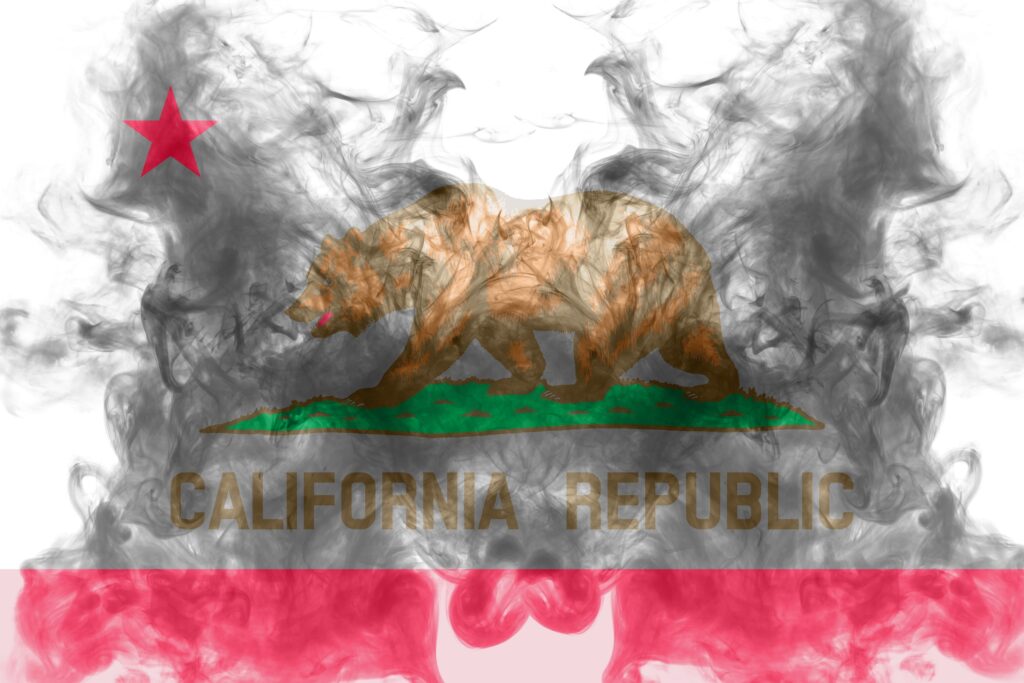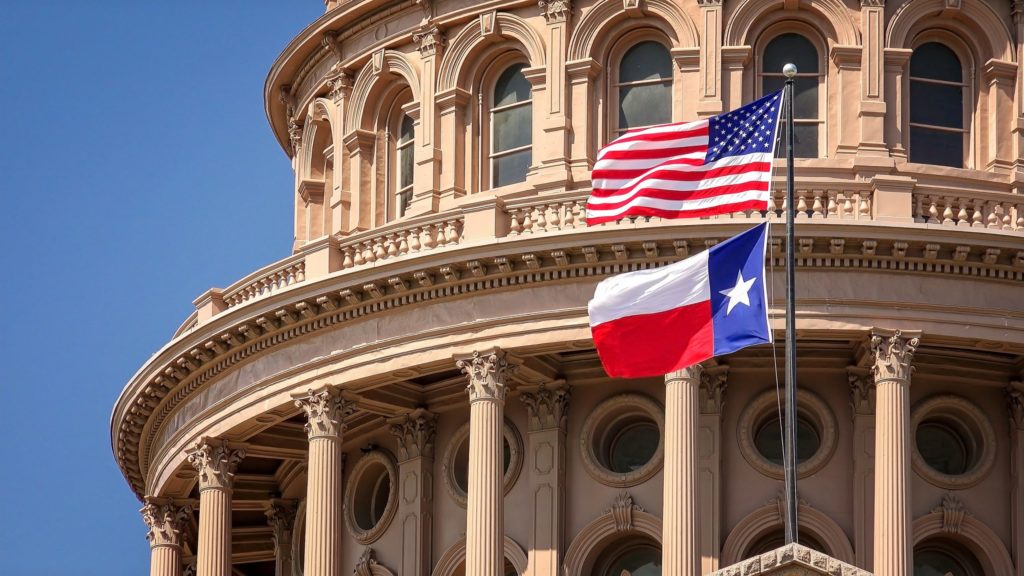Washington wants to weaponize antitrust law to attack “Big Tech” and it is going to backfire horribly
A series of new bills proposed in the House would, if enacted, impose the most significant overhaul of the nation’s antitrust laws in our country’s history. Specifically, the proposed legislation would alter current antitrust laws in a way that would give the federal government more power and oversight. Here’s how it all breaks down:
Protecting Competitors, Not Consumers
Amazon, Apple, Facebook and Google have all been in the crosshairs over the past few years—but new proposed legislation from House antitrust subcommittee chair Rep. David Cicilline (D-R.I.) and ranking member Rep. Ken Buck (R-Colo.) seems to have made it personal. Their package of five bills was precisely crafted to target these large digital platforms. However, despite the apparently focused intention of these bills, the new laws would apply to any company with a large enough digital presence to be considered a “covered platform” as determined by the Department of Justice (DOJ) or the Federal Trade Commission (FTC). Under the new law, a company is deemed a covered platform if it has a market cap of $600 billion, 50 million active monthly users (or 100,000 active monthly business users) in the United States, and is a “critical trading partner,” which means the platform can impede another business’ access to its customers.
Under the proposed legislation, once a company is designated as a covered platform, the DOJ and FTC would have sweeping enforcement powers to shape that company’s market outcomes as they see fit. For example, under the “Ending Platform Monopolies Act” the DOJ and the FTC would determine what lines of business a covered platform may own and impose new requirements for structural separation. Any violations would be subject to significant penalties. Likewise, the “American Choice and Innovation Act” would require divestitures in cases where a covered platform owns a line of business and does anything to advantage its business over that of its rivals.
Among other things, these bills would eliminate self-preferencing, a widespread practice used by many businesses. Today, this translates to a store selling its own brand of products alongside all of the other brands it sells. For example, Amazon launched Amazon Essentials to compete with third-party sellers on its platform. According to the bills’ authors, Amazon’s use of self-preferencing is anticompetitive and requires intervention. Meanwhile, Walmart, whose online sales grew by 79 percent for its 2021 fiscal year, would still be free to promote its Sam’s Club products because the company has a market cap of “only” $392 billion.
In reality, self-preferencing is generally a sign of vigorous competition that provides consumers greater choice and lower prices. It is a market on steroids—a constant discovery process to identify consumers wants and needs, mixed with an unyielding price competition that keeps downward pressure on prices—so consumers pay less for similar products. If, indeed, self-preferencing resulted in consumer harm it would be a violation of the Sherman Act, but there is little evidence to suggest that is the case.
In this instance, regulators view their role as protecting competitors rather than consumers, so they view self-preferencing as unfair and harmful to the market. Lina Khan, President Biden’s pick for FTC commissioner has said as much: “It is possible that limiting a network monopolist’s ability to compete on its own network, would sacrifice certain cost savings, resulting in higher prices.” This was, in fact, the basis of the European Union (EU) investigation into Google; now, U.S. lawmakers are creating their own version of these regulations to serve political purposes.
Abandoning the Consumer Welfare Standard
Just as concerning, “The Platform Competition and Opportunity Act” targets mergers and acquisitions by covered platforms, flipping the burden of proof by requiring the acquiring firm to demonstrate that the merger does not eliminate any competitors or potential competitors. While the goal of the legislation may be to prevent platforms from absorbing potential rivals, this view ignores the fact that smaller startups often want to be acquired by their larger counterparts. An acquisition is a way to cash out without having to build out business and marketing strategies, among other things, which some startups may prefer not to do. Limiting opportunities for an acquisition will make it more difficult to attract the venture capital that fuels the startup ecosystem, ultimately harming innovation and economic growth. In fact, right now, venture capital firms have been “raising new funds at a pace” that could set a record this year, and many go-to digital products including Uber, Lyft and Airbnb received venture capital injections. Similar investments might be less likely under these bills and even more problematic for smaller startups.
Additionally, the Access Act would impose broad data portability and interoperability mandates, while “The Merger Filing Fee and Modernization Act of 2021” would increase filing fees for larger mergers as well as boost funding levels for both the DOJ and the FTC. These bills would expand federal oversight and give the FTC a more prominent role in rewiring the internet.
The bills introduced in the House are an assault on digital commerce, one of the bright spots in the U.S. economy. At best, these new laws are a direct threat to permissionless innovation, with the approval of federal regulators becoming a prominent roadblock when trying to do business in a dynamic and rapidly changing marketplace. At worst, this would turn covered platforms into little more than public utilities—platforms for others to do business. Any efforts to utilize economies of scale or scope may trigger enforcement actions, giving platform operators fewer incentives to invest in new technologies that drive innovation.
At the broadest level, these bills are an attempt to abandon the consumer welfare standard in favor of a more interventionist approach along the lines of antitrust practices in the EU. Rather than focusing on demonstrable harms to consumers, this altered enforcement would aggressively define and shape markets, with an eye toward protecting competitors, often at the expense of consumers. For example, Adam Kovacevich at the Chamber of Progress finds that the new laws would prohibit cross-posting between Facebook and Instagram, ban Apple from recommending apps in the AppStore and a host of other activities that are a common part of a user’s online experience. In fact, the AppStore itself may not survive if these bills become law. Good luck finding and updating your favorite apps—and ensuring they work with friends and family—if it disappears.
Solutions in Search of a Problem
As with many other regulatory incursions into the digital world, the renewed push for tougher antitrust laws is a solution in search of a problem. Both Republican and Democratic criticisms of Big Tech raise a litany of issues—from an anti-conservative bias to fake news and hate speech—none of which fall within the purview of antitrust law and anticompetitive behavior. Instead, the new regulatory regime under consideration is a punitive and political attack on politically disfavored corporations. Ultimately, that is the larger battle—abandoning the consumer welfare standard and its focus on demonstrable consumer harm in favor of a politicized regime that allows those in Congress greater control over private companies.
And while tech companies may be the exclusive focus of the current reforms, the scope of the proposed legislation could easily be expanded by a future Congress. Even today, many lawmakers are openly hostile toward a growing list of American businesses. Republicans have been vocal in calling for retaliatory measures against “woke” corporations deemed too progressive in their public stances. If policymakers continue to abandon economic principles, it would not be surprising to see calls for additional antitrust enforcement for any company that makes political waves.
Prior to the adoption of the consumer welfare standard almost 50 years ago, antitrust law was often confusing, economically suspect and even contradictory. In one notorious case, the Supreme Court blocked a merger where the merged company would have had a market share of merely 7.5 percent—hardly an example of market dominance. And economists examining antitrust enforcement prior to the consumer welfare standard found no correlation between antitrust enforcement and a reduction in the welfare losses from monopoly. Further research found congressional influence to be a better predictor of enforcement activity.
The consumer welfare standard helped rationalize antitrust enforcement and the case law that has emerged since its adoption has helped curb the political abuse of antitrust policies. Abandoning the need to identify demonstrable consumer harm would return antitrust law to an era characterized by arbitrary enforcement actions that many in today’s Congress seem to have forgotten. But the increased political oversight that comes with adopting more aggressive tools for antitrust enforcement poses a real threat to consumers, to innovation and to economic growth.
Abandoning the American Way in Favor of a European One
The bills introduced in the House can be interpreted as a turn toward a European approach to competition policy. Last year, the EU passed the Digital Markets Act, and the House proposals sound eerily similar. The EU started by defining “gatekeepers,” something similar to the “covered platforms” in the House bills. Restrictions on self-preferencing, interoperability requirements and other elements introduced in the House all have direct counterparts in the EU’s law.
The EU adopted its laws with a clear target in mind—American tech companies that were dominating markets in Europe and outperforming their European rivals. Politically, it made sense to rewrite the rules of the game in favor of homegrown talent. Among other things, this meant the EU could collect billion-dollar fines from American companies, all in the name of “fair competition.”
But the performance of European companies is probably the best reason not to follow the EU’s lead in redefining how we regulate competition. By virtually every measure, U.S. companies have been more innovative, more dynamic and more profitable than their European counterparts. There are more start-ups in the United States and they have greater access to capital. While the United States and the EU have economies of similar magnitudes, in 2019, U.S. startups had a valuation of $1.37 trillion compared to EU startups with an evaluation of $240 billion.
The rise of Silicon Valley is an American success story. Today the top five companies in the United States based on market capitalization are tech companies. They have led the digital revolution, providing consumers a virtually endless stream of new products at low or even zero cost in many cases. These are signs of a robust market that serves consumers well. It is important to remember that big does not equate to bad—sometimes a firm is large because it is efficient at serving its customers what they want. The tech sector supports 12 million jobs and more than $2 trillion in economic output. Current antitrust laws grounded in the consumer welfare standard are part of the institutional framework that make this possible. Congress should ensure antitrust laws fit best into the modern U.S. economy, but the House proposals are a radical departure that shifts the focus to protecting competitors rather than consumers. They would weaponize antitrust law, provide politicians a greater say in America’s boardrooms and replace economic efficiency with political expediency and preference.







